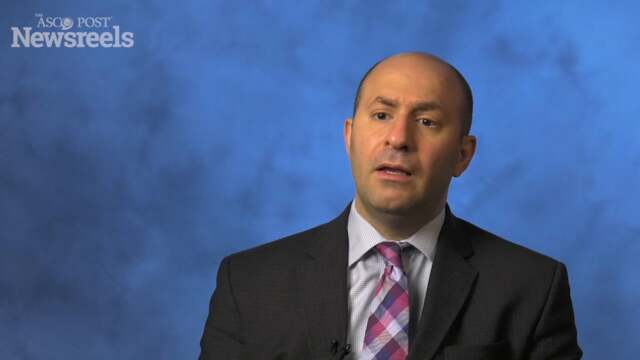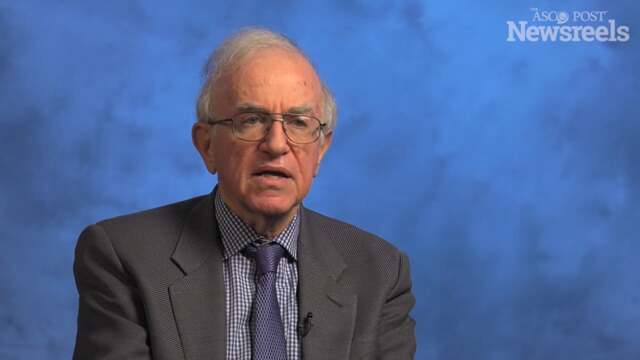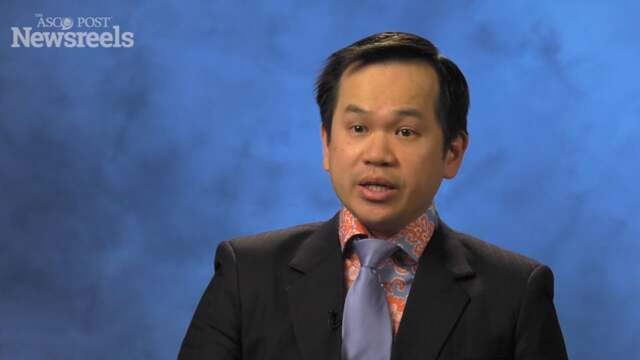W. Marston Linehan, MD, on Renal Cell Carcinoma: Genetic Predisposition
2017 Genitourinary Cancers Symposium
W. Marston Linehan, MD, of the National Cancer Institute, discusses the genetic basis of the different types of kidney cancer, which provides the key to clinical management.
Toni K. Choueiri, MD, of the Dana-Farber Cancer Institute, discusses study findings on atezolizumab with or without bevacizumab vs sunitinib in patients with untreated metastatic renal cell carcinoma. (Abstract 431)
Sumanta K. Pal, MD, of the City of Hope, discusses the evolution of circulating tumor DNA profile from first-line to second-line therapy in metastatic renal cell carcinoma. (Abstract 434)
Lawrence H. Einhorn, MD, of the Indiana University Simon Cancer Center, summarizes his keynote lecture on the controversies in management of clinical stage I testicular cancer and the long-term consequences of platinum combination chemotherapy.
Sumanta K. Pal, MD, of the City of Hope, summarizes a session he co-chaired on the opportunities and challenges in systemic therapy for advanced renal cancer, including imaging as a biomarker of response and optimal selection of front-line treatments. (General Session 9)
Paul L. Nguyen, MD, of the Dana-Farber Cancer Institute, summarizes a session he co-chaired, which included discussion of Canadian vs U.S. guidelines; ProtecT; genomic and hereditary tests; and imaging to guide active surveillance. (General Session 1)





